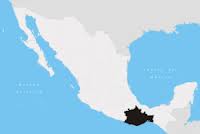Last December Mexico's highest court made a unanimous ruling striking down the ban on same-sex marriage in three cases (they must also strike it down in two more for it to have any effect nationally) out of the southern state of Oaxaca, and the ruling was not published at the time.
 It was made public Monday, Buzzfeed reports:
It was made public Monday, Buzzfeed reports:
The ruling not only makes a strong statement about Mexican law's treatment of equal protection guarantees, it also relies heavily on civil rights rulings handed down by the U.S. Supreme Court. Although several justices of the American court take pride in not caring what foreign courts say, any who read the Mexican decision will find the court makes an impassioned case for the United States to follow its lead.
Writing for a unanimous tribunal, Minister Arturo Zaldívar Lelo de Larrea invoked the U.S. cases Loving v. Virginia and Brown v. Board of Education to argue for marriage equality in a way that American activists would be overjoyed to see from a justice of the U.S. Supreme Court.
Buzzfeed adds:
Despite its breadth, this ruling will have only a small immediate impact in Mexico.
Technicalities of the country's legal system mean that only the three couples who brought this case will be able to marry right away. Mexico City is still the only jurisdiction inside Mexico where marriage between same-sex couples is fully legal; several more lawsuits will have to be brought before that right is available nationwide.
Unlike in the United States, it takes more than one ruling from Mexico's Supreme Court to strike down a law—the court must rule the same way in five separate cases before a law falls. This ruling concerns three separate cases; it will take two more for any same-sex couple in Oaxaca to be able to wed easily, and then the process may have to be repeated in other states. But this precedent means this is a procedural issue, not a legal one.



